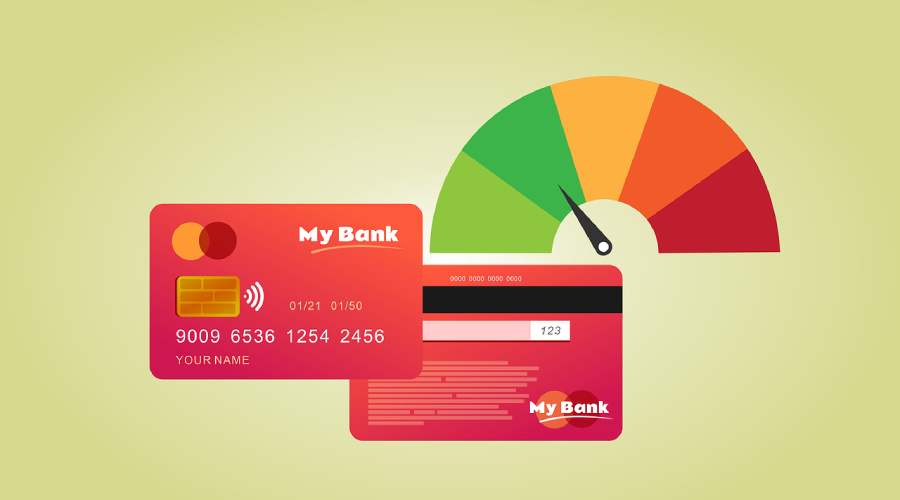Business Credit Report vs. Personal Credit Report: Key Differences
Your personal credit score might be 800, but your business could still get denied for a loan. This harsh reality surprises thousands of business owners every year. They assume good personal credit automatically means good business credit. Wrong.
The two credit systems operate in completely different worlds. Financial institutions like Command Credit Corp see this confusion daily when they review applications where business owners have pristine personal credit but terrible business credit histories. The disconnect can cost you deals, partnerships, and opportunities you didn’t even know you lost.
Most people spend years building their personal credit, checking it monthly, protecting it like a valuable asset. Then they start a business and ignore business credit entirely. Big mistake.
The Fundamental Difference in How They Work
Personal credit reports track you as an individual. Business credit reports track your company as a separate entity. This might seem obvious, but the implications run deeper than most people realize.
Your personal credit follows you everywhere. Change your name, move to another state, get married – your credit history comes with you. Business credit stays tied to your company. Sell the business, and the new owner gets the credit history too.
Personal credit bureaus have your Social Security number as the primary identifier. Business credit bureaus use your Employer Identification Number (EIN) or sometimes your DUNS number. Different tracking systems mean different rules.
The scoring ranges are different too. Personal credit typically runs from 300 to 850. Business credit scores vary by bureau – some use 1 to 100, others use 101 to 992. You can’t compare them directly.
Perhaps the biggest difference is transparency. You get one free personal credit report per year from each major bureau. Business credit reports usually cost money, and you might need to pay each bureau separately to get the full picture.
Who Can See Your Credit Reports
This is where things get uncomfortable for many business owners.
Your personal credit report is private. Only you and companies with permissible purposes can access it. That means lenders, landlords, employers in certain industries, and insurance companies. The list is limited and regulated.
Business credit reports are public. Anyone can request them. Your competitors can see them. Potential customers can check them before signing contracts. Suppliers can review them before extending payment terms.
Think about that for a moment. Your biggest competitor can pull your business credit report right now and see exactly how you pay your bills. They can see if you’re struggling financially or if you’re in strong shape.
Some business owners find this terrifying. Others see it as motivation to keep their business credit spotless. The choice is yours, but you can’t change the rules.
Payment History and Scoring Factors
Personal credit scoring is fairly standardized. Payment history accounts for about 35% of your score across all major bureaus. The formulas are similar, even if they’re not identical.
Business credit scoring is more complex and less standardized. Each bureau weights factors differently. Some focus heavily on payment history, others consider industry risk factors more heavily.
Personal credit looks at your payment history on credit cards, mortgages, auto loans, and other consumer debts. Business credit examines how you pay suppliers, vendors, business loans, and trade credit accounts.
The payment patterns are different too. Personal credit typically looks at monthly payments. Business credit often tracks net payment terms – like paying invoices within 30 days instead of making monthly installments.
Late payments hurt both types of credit, but the thresholds differ. A 30-day late payment on personal credit is bad. In business credit, some industries expect longer payment cycles, so the impact might be less severe depending on your business type.
Credit Limits and Utilization
Personal credit cards have set limits, and your utilization ratio is straightforward to calculate. Use $3,000 of a $10,000 limit, and your utilization is 30%.
Business credit gets messier. You might have trade accounts with no set limits. Some suppliers extend credit based on your payment history, gradually increasing your available credit as you prove reliability.
Personal credit utilization affects your score immediately. Business credit utilization might take longer to impact your score because business accounts don’t always report monthly like consumer accounts do.
The 30% utilization rule from personal credit doesn’t necessarily apply to business credit. Some business credit experts suggest keeping utilization even lower – perhaps around 10% – because business lending decisions often involve larger amounts and higher risks.
Legal Protections and Rights
Personal credit comes with extensive legal protections. The Fair Credit Reporting Act gives you specific rights to dispute errors, request investigations, and receive free annual reports.
Business credit has fewer protections. The same laws apply in some cases, but the enforcement and procedures can be different. Disputing business credit errors often takes longer and requires more documentation.
Personal credit also benefits from the Fair Debt Collection Practices Act, which limits how creditors can contact you about debts. Business debt collection has different rules, and creditors often have more aggressive collection options available.
The Impact of Mixing Personal and Business Credit
Here’s where many business owners make costly mistakes. They use personal credit cards for business expenses or personally guarantee business loans. This mixing can hurt both credit profiles.
When you use personal credit for business expenses, you’re essentially lending money to your business. If the business struggles, your personal credit utilization spikes. If you can’t pay the personal cards used for business, your personal credit score drops.
Personal guarantees on business loans mean the debt appears on both your personal and business credit reports. Default on the business loan, and both credit profiles get damaged.
The reverse can happen too. Some business owners think they can hide behind their business credit and avoid personal liability. Not always true. Many business loans still require personal guarantees, especially for newer businesses or those with limited credit history.
Building Credit in Both Systems
You can’t build business credit the same way you build personal credit. Personal credit benefits from having old accounts you never use. Business credit rewards active trade relationships and regular payment activity.
Personal credit scores improve when you have a mix of credit types – cards, loans, mortgages. Business credit often focuses more on trade credit and supplier relationships. Having a business credit card helps, but trade references from suppliers often carry more weight.
Personal credit building can start immediately when you turn 18. Business credit building requires an established business entity, an EIN, and actual business operations. You can’t build meaningful business credit before you have real business relationships.
The time frames are different too. Personal credit changes can show up within 30 days. Business credit updates can take 30 to 90 days, depending on when suppliers report and how often bureaus update their records.
Checking and Monitoring Both Reports
Most people check their personal credit regularly. Many have never seen their business credit report.
Personal credit monitoring is easy and often free. You can get alerts when your score changes, when new accounts open, or when someone runs a credit check.
Business credit monitoring usually costs money and often requires separate subscriptions for each major bureau. The alerts might be less frequent, and the reporting might be less detailed than what you’re used to with personal credit.
Some business owners assume their accountant or bookkeeper monitors their business credit. Usually not true. Credit monitoring typically falls to the business owner or whoever handles banking relationships.
Strategic Considerations for Both
Smart business owners treat personal and business credit as separate but related assets. Strong personal credit can help you get better terms on business loans, especially when personal guarantees are required.
Strong business credit protects your personal credit by reducing the need for personal guarantees and personal credit cards for business use.
The goal isn’t just high scores in both systems. The goal is having the right credit profiles to support your business objectives. Sometimes that means accepting slightly lower scores in exchange for better borrowing terms or stronger supplier relationships.
Think of personal and business credit as different tools in your financial toolkit. You wouldn’t use a hammer for every job, and you shouldn’t rely on just one type of credit for all your financing needs.
Understanding both systems gives you more options and better control over your financial future. The businesses that master both personal and business credit often find doors opening that their competitors never knew existed.
Featured Image Source: https://pixabay.com/illustrations/credit-card-credit-score-mastercard-6401275



